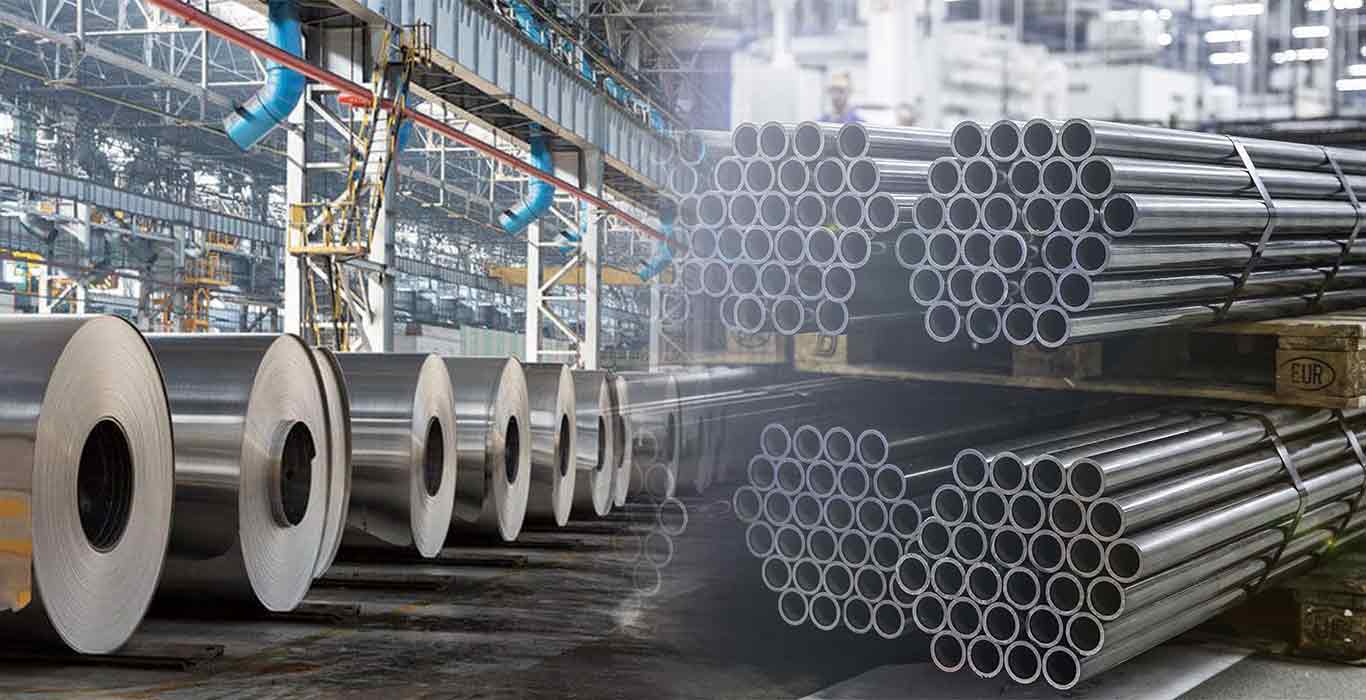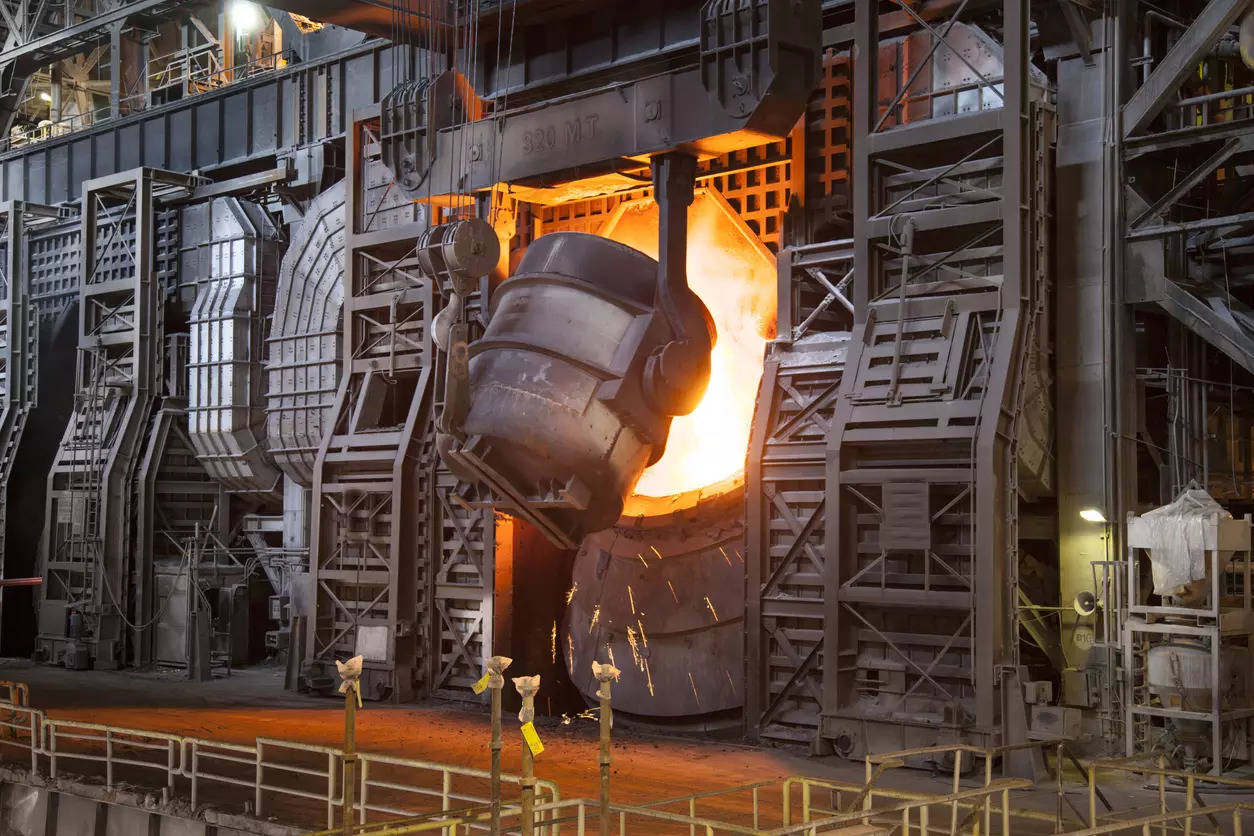Jindal Stainless Ready for EU’s Carbon Tax: A Deep Dive into Their Approach to Scope 3 Emissions in 2023

Jindal Stainless Ready for EU’s Carbon Tax: A Deep Dive into Their Approach to Scope 3 Emissions in 2023
The manufacturer of stainless steel, which just finished a one million tonne expansion in Odisha to become a 2.9 mtpa player and one of the top 10 manufacturers of stainless steel globally, anticipates a 20 to 25 per cent growth in production this fiscal year.
The company Jindal Stainless, which produces stainless steel goods for industries including transportation and construction, is preparing for the Cross Border Adjustment Mechanism (CBAM) of the European Union by reducing its Scope 3 emissions.

“As a firm, we are well prepared. We already have investments in green energy. We also intend to use hydrogen energy. Therefore, Jindal Stainless will be prepared for whatever the CBAM brings, according to its managing director Abhyuday Jindal.
While the EU’s carbon price challenges the whole sector, Jindal said that his business, which currently relies 95% on scrap, concentrates on Scope 3 emissions by integrating all its suppliers into a technologically automated platform.
“We’ve given them instruction. According to the MD, we have recruited a company to teach the proper procedures to each of our domestic suppliers while keeping an eye on governance, social issues, and the environment.
The manufacturer of stainless steel, which just finished a one million tonne expansion in Odisha to become a 2.9 mtpa player and one of the top 10 manufacturers of stainless steel globally, anticipates a 20 to 25 per cent growth in production this fiscal year.
The home market has enormous potential. It is expanding at about 9–10%. By 2030, India plans to produce 300 MT of steel and 9 MT of stainless steel. We will undoubtedly own the most portion of it, Jindal asserted.
30–40 years ago, the kitchenware industry controlled the stainless steel market. Stainless steel is used in a broader range of industries, including rail, automobile, transportation, bridges, airports, metro stations, and coastal infrastructure.

“Sustained growth is unquestionably enabled and catalyzed by stainless steel. India now uses between 2.6 and 2.8 kilogramme of stainless steel per person. In the following three to four years, we anticipate it will at least approach 5 kg per capita, he added, noting that the average worldwide is 6 kg and that per capita in wealthy nations is around 28 to 30 kg.
He said that although domestic demand will grow tremendously, the second half of the fiscal year would likely improve export prospects.
However, Jindal said that China has widely dumped stainless steel that is both subsidized and of inferior quality onto the domestic market. He has asked the government to impose anti-dumping duties to control these imports.
“The steel ministry is aware that the stainless steel sector is struggling, and we have contacted the finance ministry, but we have yet to receive an encouraging response. According to him, China holds a 30–40% market share of the home industry.
Between FY21 and FY23, Indian imports of Chinese stainless steel surged by 318%. According to him, this has influenced the local industry’s capacity utilization, which is currently at less than 50%.
The European Union’s Carbon Border Adjustment Mechanism (CBAM) is a game-changer for industries worldwide. Aimed at reducing carbon dioxide emissions, the mechanism imposes tariffs on imports from countries that do not meet the EU’s environmental standards. As international corporations brace themselves for this new economic reality, Jindal Stainless, one of India’s largest stainless steel producers, emerges as a proactive example of industry adaptation.

In 2023, the company is not only gearing up for the EU’s carbon tax but also has its sights set on addressing Scope 3 emissions. This article provides an in-depth look into Jindal Stainless’ strategies and commitments.
Before diving into Jindal’s strategies, it’s vital to understand the concept of Scope 3 emissions. In the world of carbon accounting, emissions are categorized into three scopes:
- Scope 1: refers to direct emissions from company-owned or controlled sources.
- Scope 2: covers indirect emissions from the generation of purchased electricity, steam, heating, and cooling consumed by the company.
- Scope 3: includes all other indirect emissions in a company’s value chain, including upstream and downstream emissions.
Scope 3 emissions are:
- Often the most extensive source of a company’s greenhouse gas footprint.
- Encompassing raw material extraction.
- Employee commuting.
- End-of-life product disposal.
Jindal Stainless has prioritized comprehensive carbon audits to understand and quantify its Scope 3 emissions. This involves collaborating with suppliers, customers, and third-party auditors to track emissions across the value chain. The detailed audit allows the company to pinpoint significant sources of emissions and create targeted strategies to reduce them.
Recognizing that many Scope 3 emissions come from raw material extraction and processing, Jindal Stainless is collaborating with its suppliers to implement more sustainable practices. This might include using sustainable raw materials, improving energy efficiency, and adopting low-carbon technologies.

Innovation is at the core of Jindal’s approach. The company invests in R&D to find low-carbon alternatives for various processes and materials. They aim to reduce emissions across product life cycles, from raw material sourcing to disposal.
Jindal Stainless understands that achieving its Scope 3 emission targets requires widespread buy-in. The company is actively engaging with its employees, partners, and stakeholders through workshops, training programs, and communication campaigns, fostering a culture of sustainability across the board.
Embracing a circular economy approach, Jindal Stainless is emphasizing recycling and reuse. This reduces the demand for new raw materials (and associated Scope 3 emissions) and diminishes the emissions related to waste disposal.
The EU’s Carbon Border Adjustment Mechanism is set to usher in a new era of global trade dynamics, where sustainability is no longer a mere buzzword but a tangible economic variable. Companies worldwide must adjust their strategies to remain competitive in such a landscape.
Jindal Stainless’ proactive stance, particularly towards Scope 3 emissions, serves as a case study in adaptive business strategies. With its comprehensive approach encompassing audits, collaboration, innovation, stakeholder engagement, and circular economy principles, Jindal Stainless is poised not only to meet the challenges of the CBAM but to emerge as a global leader in sustainable industry practices.





